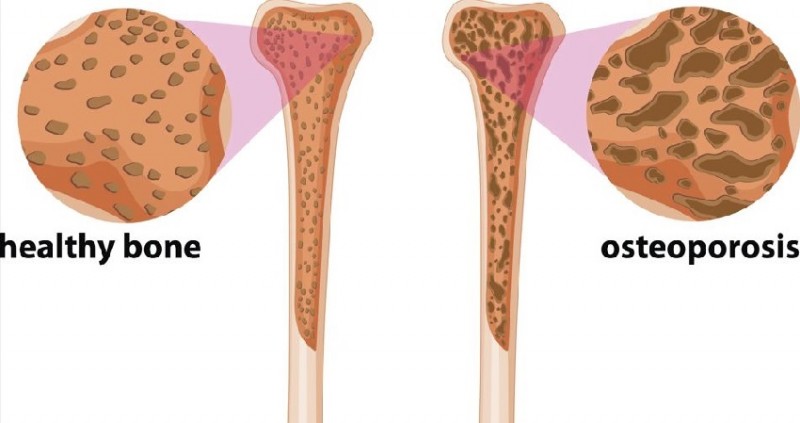
Diabetes and osteoporosis: When it comes to health, certain conditions affect women more significantly than men. Diabetes and osteoporosis are two such conditions that can have a profound impact on women's health throughout their lives.
Diabetes: A Silent Threat
Diabetes is a chronic condition that occurs when the body either doesn't produce enough insulin or cannot use insulin effectively. This leads to an increase in blood sugar levels, which, if left uncontrolled, can cause serious health complications.
Impact on Women:
Heart Disease Risk: Women with diabetes have a significantly higher risk of heart disease compared to men with diabetes. Heart disease is the leading cause of death among women with diabetes.
Gestational Diabetes: Pregnant women can develop gestational diabetes, which can increase the risk of complications during pregnancy and childbirth.
Polycystic Ovary Syndrome (PCOS): Women with PCOS are at a higher risk of developing diabetes due to insulin resistance.
Blindness and Kidney Disease: Diabetes is a leading cause of blindness and kidney disease in women.
Prevention and Management:
Healthy Diet: A balanced diet rich in fruits, vegetables, lean proteins, and whole grains can help manage blood sugar levels.
Regular Exercise: Physical activity helps improve insulin sensitivity and manage weight, reducing the risk of diabetes.
Regular Check-ups: Women should monitor their blood sugar levels regularly and undergo regular health check-ups to detect diabetes early.
Osteoporosis: Fragile Bones
Osteoporosis is a condition characterized by fragile bones that are more susceptible to fractures. It occurs when the creation of new bone doesn't keep up with the removal of old bone.
Impact on Women:
Higher Incidence: Women are at a significantly higher risk of developing osteoporosis compared to men.
Bone Fractures: Women with osteoporosis are more likely to experience fractures, particularly in the hip, spine, and wrist.
Hormonal Changes: The decrease in estrogen levels during menopause accelerates bone loss in women.
Smaller Frame: Women generally have smaller and lighter bones than men, which puts them at higher risk of osteoporosis.
Prevention and Management:
Calcium and Vitamin D: Adequate intake of calcium and vitamin D is crucial for maintaining bone health.
Weight-Bearing Exercise: Regular weight-bearing and muscle-strengthening exercises help build and maintain bone density.
Avoidance of Smoking and Excessive Alcohol: Smoking and excessive alcohol consumption can increase the risk of osteoporosis.
Bone Density Testing: Women, especially after menopause, should undergo bone density testing to assess their risk of osteoporosis.
Understanding the specific ways in which diabetes and osteoporosis affect women is crucial for prevention, early detection, and effective management. By adopting a healthy lifestyle, including a balanced diet, regular exercise, and preventive health screenings, women can take proactive steps to protect their long-term health and well-being.
Don’t Let Diabetes Dampen Your Health: Nutrient-Rich Treats This Summer
Feeling Dizzy All the Time? Here are 5 Ways to Get Rid of Lightheadedness
Do You Know What Ginger Ale is? How It Helps Balance Women's Health?